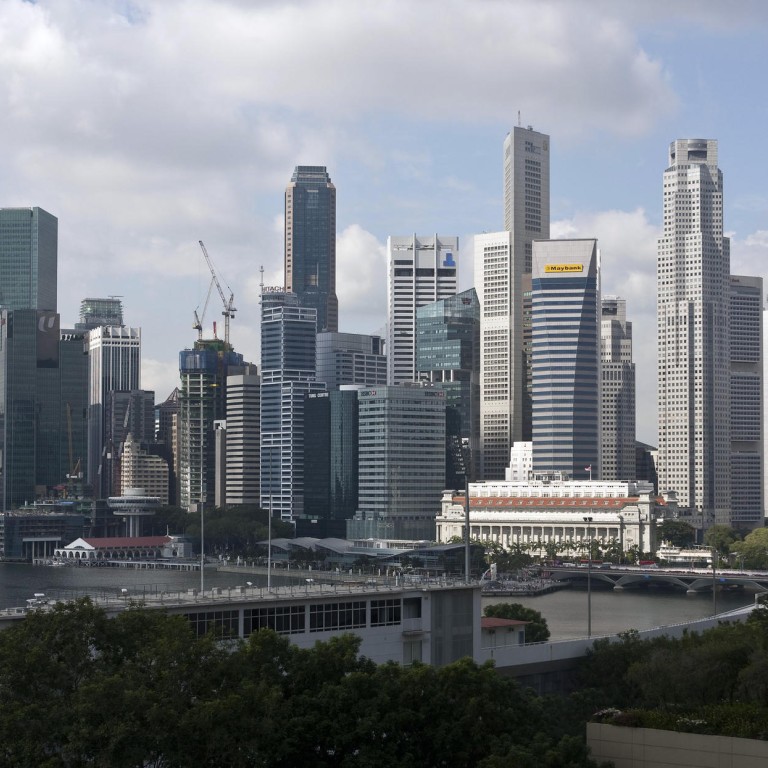
Letters to the Editor, July 6, 2014
I refer to Philip Bowring's column ("Singapore's a poor role model", June 29). Bowring described Singapore as having "a social economy propped up by dominant state enterprises and foreign companies and an underclass of low-skilled migrants".
Bowring described Singapore as having "a social economy propped up by dominant state enterprises and foreign companies and an underclass of low-skilled migrants".
In Hong Kong, there are private companies such as property developers engaging in cronyism and causing widespread discontent.
Both cities have low taxes, making them tax havens for rich foreigners and locals.
However, Singaporean state-run corporations such as CapitaLand or Temasek redistribute their profits back to residents through the Central Provident Fund (CPF).
To claim that Singapore's CPF is low yielding in comparison to our Mandatory Provident Fund (MPF) is misleading as Hong Kong has a higher inflation rate.
Also, the CPF savings earn a minimum risk-free interest of 2.5 per cent guaranteed by the government. And residents' Medisave and retirement accounts earn 4 per cent.
Singaporeans mainly get back their investments in the form of affordable housing through their Housing and Development Board.
In Hong Kong, on the other hand, we are experiencing a housing crisis due to escalating prices.
The high levels of savings enforced by the CPF cannot be worse than the reality of insufficient retirement funds under our MPF.
Bowring attributes Singapore's success largely to "cheap, disposable labour". At least this is imported.
Locally, 200,000, or 10 per cent of working households, are working poor households with families and with children living in appalling conditions such as subdivided apartments. With little social mobility, their plight cannot be worse than that of the contracted workers in Singapore.
It is trivial to argue whether labour is cheaply imported or locally sought.
What's more important is putting the welfare of people first by providing good housing, health care, education and retirement schemes. In these areas Singapore far surpasses Hong Kong.
Comparing Singapore to Hong Kong has become a popular topic, partly because of our insecurity.
Although Hong Kong has a higher gross domestic product relative to its gross national income, while Singapore is the opposite, in Hong Kong the rich get a higher proportion of GDP.
As ex-Singaporean leader Lee Kuan Yew once said, before one has a nation, there must be two things.
First, people with a common identity of interest, a common social experience. And, secondly, complete freedom to exercise the collective will.
In Hong Kong, we lack both of these. We are constrained politically and young people are not benefitting economically.
I agree with those who have called for buses to be diverted from Des Voeux Road Central (from Pedder Street to Morrison Street) so that it can be left to pedestrians and trams.
I would like to see it transformed into a tree-lined pedestrian boulevard.
Without the present traffic congestion, air pollution levels would be reduced. At the moment the traffic flow on this road is very heavy.
Moreover, if this proposal was implemented, it would allow for many plants and trees to be planted in Des Voeux Road Central, which would greatly improve the appearance of the street.
If the diversion of buses and other vehicles is managed properly, it will avoid the problem of spreading traffic jams and air pollution to other districts.
Hong Kong is getting hotter every day and we are forced to run air-conditioning systems in our offices and vehicles at full blast.
As a result we are consuming more electricity and fossil fuels, thus further polluting an already noxious atmosphere.
There is even more destruction of the environment in neighbouring provinces, with non-elected bureaucrats demanding more production and more output of non-essential goods to uphold gross domestic product.
When are we going to wake up and stop this stupidity? Isn't it time for us to say "no" to more energy consumption, to mindless consumerism and a waste of precious resources?
One decision that must be made by Hong Kong officials is to put a firm cap on electricity consumption and to end all subsidies and discounts for big consumers.
This has to be done because ever-rising electricity consumption is an obvious indicator of energy usage and wastage, an ominous sign showing environmental overload and degradation.
The Hong Kong government must bite the bullet and stop the rise in electricity consumption.
Wasteful lighting, useless bright billboards and excessively cool air conditioning must be eliminated.
A cap on consumption and higher tariffs will naturally raise costs, thus forcing wasteful consumers to stop their environmental damage.
If our fat-cat commercial bosses object to this overdue decision, we must remind them that our health and a clean environment are more important than their profits. We are all in the same boat.
J. Garner, Sham Shui Po
I think many employers do not realise that they should respect their domestic helpers.
In status terms they see themselves as superior.
Because these employers see their helpers as having a low status, they expect them to accept all instructions without question. Also, until the recent case of alleged abuse of an Indonesian helper, some employers did not understand the possible consequences of their actions, believing that penalties for mistreatment will be small.
Also many domestic helpers do not understand their rights.
The government should inform them of their rights and how to seek help. In addition, schools should educate students in what is appropriate behaviour towards domestic helpers.
Unmanned aerial vehicles (UAVs) have many uses, such as taking photos or recording videos in dangerous and high places. However, not all of the people using UAVs are professionals and many are inexperienced.
The Hong Kong government needs to regulate UAVs and the use of the data collected by them. A licensing system should be introduced that not only tests flying skills, but also the safety and weather knowledge of those operating UAVs.
The government should also pass a law to ensure safety, promote privacy and guard against illegal usage.

